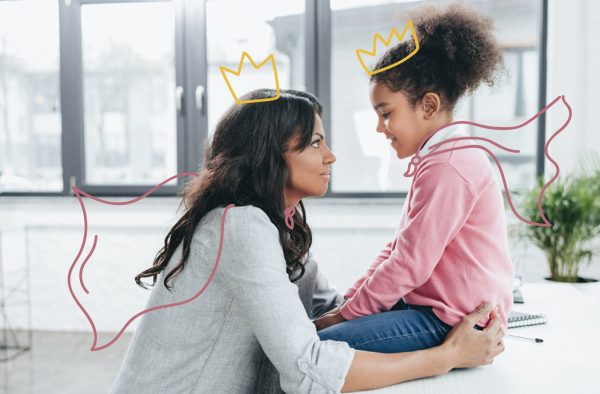How to Help Your Child Develop a Positive Body Image

As parents, we all want our children to feel confident and happy in their own skin. However, body image issues are becoming increasingly common, especially in today’s appearance- and social media-focused society, and this pressure can lead to negative self-image and low self-esteem in children.
Fortunately, there are ways to help your child develop a positive body image. This doesn’t mean they have to love every aspect of their appearance; it’s about accepting and appreciating their body for what it is. In this post, we’ll discuss some tips and strategies to encourage a healthy body image.
So, let’s dive in with Toley and explore some key ways you can support your child’s body image journey!
Tips on How to Help Your Children Develop a Positive Body Image
- We Are All Different!: It’s essential for parents to recognize and accept that bodies come in all shapes and sizes. They can help their children develop a positive attitude toward body diversity and avoid placing too much emphasis on physical appearance. This can help children appreciate and celebrate their and any other person’s bodies.
Parents can encourage this mindset by shifting the focus away from appearance and onto other aspects of their child’s identity. For example, they could praise their child’s creativity, kindness, or curiosity. By doing so, parents can help their children develop a sense of self-worth that is not solely dependent on their appearance. This can also help children become more accepting and open-minded toward others, regardless of their physical appearance.
Ultimately, embracing body diversity and celebrating the many facets of a person can help children develop a healthy and positive body image that will benefit them throughout their lives.
- Find Fun and Healthy Activities: A key component of promoting a positive body image in children is encouraging them to engage in physical activity. Not only does regular exercise benefit their physical health, but it can also boost their self-esteem by making them feel capable and strong. It’s important to recognize that every child is unique and may have different preferences regarding physical activity. Parents can help their children develop a healthy relationship with their bodies and a lifelong love of movement by emphasizing the importance of physical fitness in a positive and fun way. For example, they could take family walks or bike rides, sign up for a dance class, or play games that involve movement.
- Be a Role Model: As a parent, your feelings about your body can impact your child’s perception of themselves. It’s important to reflect on the messages you might send your child about body image. If you frequently discuss your body insecurities, recent diet attempts, or intense exercise regimen, these negative messages can be internalized by your child, causing them to become self-conscious about their bodies and potentially even develop unhealthy habits like dieting. Instead, model self-acceptance and self-care by talking about your body in a positive and neutral way, and focusing on healthy habits rather than appearance.
Beware of Bullying: Bullying related to weight is a serious issue affecting children’s mental and physical health. As a parent, it’s important to advocate for your child’s well-being and work with their school to address this issue. One way to do this is to encourage the school to promote health and wellness for all students, regardless of size, through nutrition and physical education programs.


